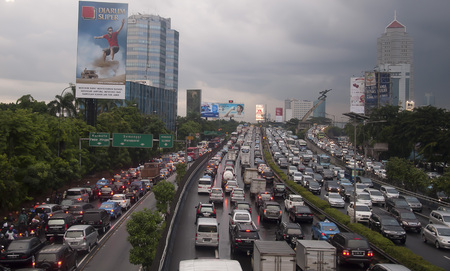17 September, 2019
The Indonesian Supreme Court has introduced the e-Litigasi, or e-Litigation, application intended to make the court process in the country faster, simpler and less expensive.
Supreme Court Regulation No. 1 of 2019 regarding the Administration of Lawsuits and Court Proceedings by Electronic Means (“SC Reg 1/2019”) was issued on August 19, 2019, and came into effect the same day. This regulation was followed by the launch of the e-Litigation application the next day.
Through SC Reg 1/2019, the Supreme Court expects that soon all court proceedings will be conducted online. The Supreme Court also issued technical guidelines for the implementation of SC Reg 1/2019 under Chief Justice Decision No. 129/KMA/SK/VIII/2019 regarding Technical Guidelines for the Administration of Lawsuits and Court Proceedings by Electronic Means.
e-Court System
The introduction of SC Reg 1/2019 follows Supreme Court Regulation No. 3 of 2018 regarding the Administration of Court Proceedings by Electronic Means (“SC Reg 3/2018”). SC Reg 3/2018 established the e-Court system for civil, religious, military and administrative lawsuits, enabling users to register lawsuits, pay court and summons fees, and exchange documents online. SC Reg 1/2019 revoked SC Reg 3/2018, but all the implementing regulations for the 2018 regulation are still in effect as far as they do not contradict SC Reg 1/2019.
According to information provided by the Supreme Court during a recent event on this digital push, between July 2018 and August 2019 there were 5,064 civil cases registered through the e-Court system, with 3,822 receiving case numbers; 12,063 religious civil cases were registered, with 10,988 receiving case numbers; and 288 state administration cases were registered, with 245 receiving case numbers. As of August 31, 2019, there were 19,034 registered e-Court users, with 17,520 of those users having been verified.
The Supreme Court said it saw this as a sign of the great public interest in moving beyond traditional court proceedings to an electronic-based system.
e-Litigation Application
The e-Litigation application expands the electronic use of court data to prosecutors, legal affairs bureaus and in-house lawyers, who can now access that data. The e-Court system can also be used for the appeals process, cassation appeals and judicial reviews of lawsuits that used the e-Litigation application at the district court (court of first instance). However, the e-Litigation application can only be used if all the parties agree to proceed electronically.
Through the e-Litigation application, court schedules can be integrated with the Court Tracking Information System (Sistem Informasi Penelusuran Perkara di Pengadilan or “SIPP”) to track court cases. All of the documents between or among the parties, i.e. responses, counterpleas, rebuttals, conclusions, evidence, etc., will be submitted online, where they will be received and reviewed by the judges. Parties will not be able to see or download documents submitted by other parties until they are verified by the judges.
Conclusion
The e-Litigation application will be implemented in stages, with the Supreme Court aiming for its implementation at all courts of first instance by 2020. With the e-Litigation application, it is expected that court administrative and trial processes will be faster and that court fees will be reduced. However, the process could be hampered by the requirement that all parties consent to the use of the application.

.jpg)





